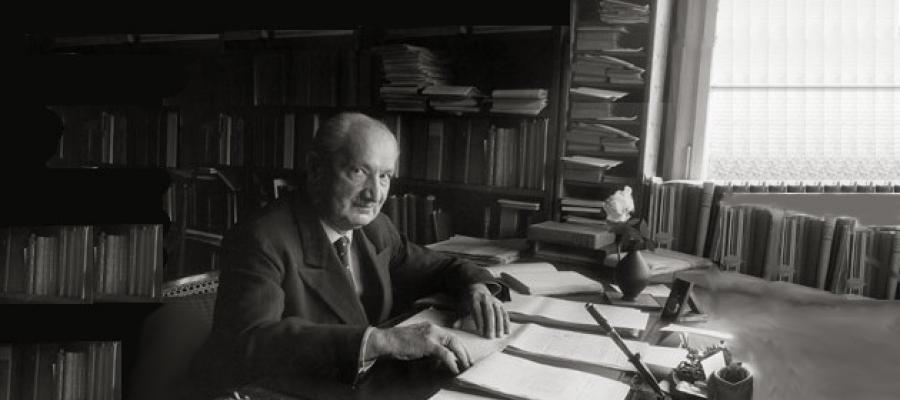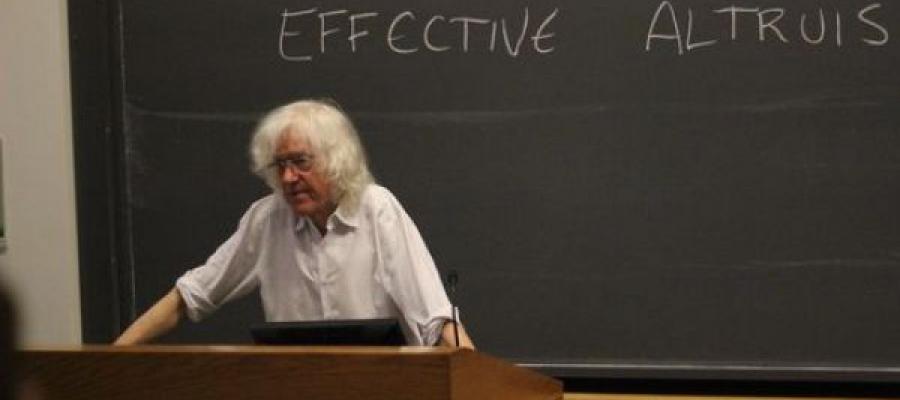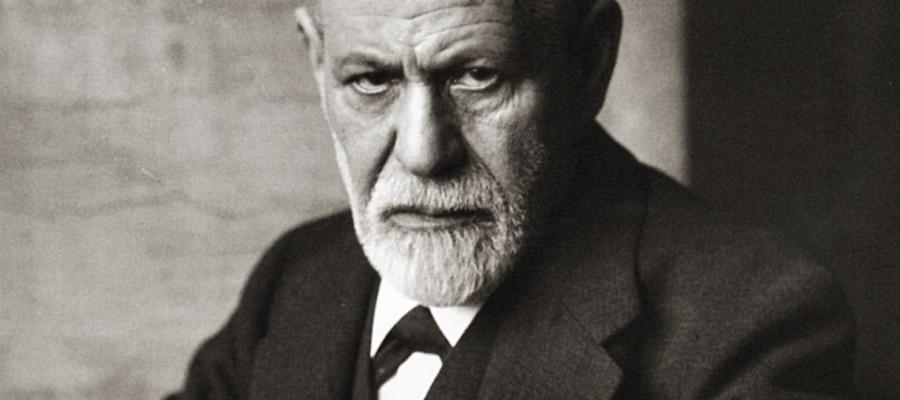Heidegger
25
Jun 2015
Martin Heidegger is the Continental philosopher most analytic philosophers love to hate. I actually never knew enough about Heidegger to form much of an opinion. I knew that he said that “Nothings noths” (Das Nichts nichtet), giving Carnap a paradigm of meaningless, unverifiable, unfalsifiable, metaphysical gibberish. I knew that he invented the term “Dasein” – “Being There”, for human beings, or human existence, or something like that, and it sounded profound. And over the years I met many thoughtful philosophers who...
Read moreFaith and Humility
06
May 2018
For better or for worse, believers and non-believers are unlikely to fully agree about the relationship between faith and humility. Indeed, some non-believers may insist that there is an inherent conflict between the two. Faith can make the believer appear stubbornly dogmatic, impervious to reasoned argument and willfully blind to the truth. People of faith sometimes seem to claim to have a direct pipeline to God. And having a pipeline to God too often frees them to ignore the protestations of the rest of us mortals. And that doesn’t look like humility, at least not to outsiders. To them, it...
Read moreSelf-Deception and the Problem with Religious Belief Formation
07
Jan 2006
A quote: “He who eats the bread and drinks the cup with an unbelieving heart eats and drinks judgment upon himself.” This line is from the communion liturgy of the Church I grew up in—the Christian Reformed Church of Grand Rapids, Michigan. The word “judgment” in the quote is a way of saying "damnation to Hell". The word “unbelieving” refers to disbelief in the core metaphysical doctrines of the Church. The effect of regular repetition of lines like this in the service is to strike fear in the person who may be questioning such doctrines. Fear in turn squelches inquiry and creative thought. I...
Read moreR.I.P. Derek Parfit
04
Jan 2017
The eminent British philosopher Derek Parfit passed away earlier this week. Although he had never joined us on the program, his 2011 book On What Matters was the subject of the first segment on our very first year-in-review special, when John and Ken talked about it with USC philosopher Mark Schroeder. As we prepare for the live broadcast of The Examined Year 2016 this coming Sunday, check out that (mostly) uncut conversation from The Examined Year: 2011.
Read moreDo They Believe in God?
20
Sep 2018
A question has plagued me since the latest cluster of scandals emerged from the Catholic church. The scandals are both about clergy who sexually abused young people and about the church hierarchy’s cover-ups. A grand jury, for instance, released a report this summer that explained how over 300 priests in six Pennsylvania dioceses abused over 1,000 children. The report’s investigation goes back to 1947 and also details deliberate concealment by higher church officials. And Pennsylvania is hardly alone: a newly released study found that in Germany 1,670 church workers took part in...
Read moreMusic as a Way of Knowing
03
Oct 2019
I was recently interviewed by the rapper-singer-writer Dessa for a BBC podcast. Whenever I’m interviewed, I like to do some research on the interviewer beforehand to get a sense of their personality, interests, and style. In this case, doing this required me to immerse myself in Dessa’s music, which I found very powerful and evocative. While listening to a particularly riveting piece called “Velodrome,” I was suddenly struck by the thought that listening to this piece is philosophically enlightening. I felt that I came to know something that I hadn’t known before listening to it. True,...
Read moreBargaining with the devil
22
Oct 2010
The title of our show, “Bargaining with the devil,” is supposed to bring to mind the issues of bargaining and compromise. These are good things, involved in virtually all cooperative and productive behavior. Everyone has to bargain. Even dictators need to bargain with other dictators and heads of state. But there are times when we shouldn't compromise because basic principles are involved; and there are issues that we shouldn't bargain about. Or so it seems. Still, even when you are completely right about an important principle, can't the situation you are in force you to compromise?...
Read moreMore on the Luck of the Draw
17
Jul 2008
Posted by Peter Stone Hello All, It's taken me a couple of days, but I am finally putting in an appearance here. Many thanks to Ken and John for having me on the show, and I hope people found the topic intriguing. Anyone is interested in thinking further about lotteries might want to check out the a new series of books being published by Imprint Academic. The series is entitled "Sortition and Public Policy." ("Sortition" refers to selection by lot--particularly political officials, as was the standard practice in ancient Athens.) There are a number of interesting titles in the series,...
Read moreThe Legacy of Freud
08
Feb 2014
This week, it’s the complex Legacy of Freud. On the one hand, it would be hard to deny that Freud was one of the towering intellectual figures of the 20th Century. Arguably, he single handedly changed the way we think about ourselves once and for all. To be sure, he wasn’t the first to think about the idea of unconscious beliefs and desires. That idea goes back over two thousand years ago to Epicurus. Unlike Epicurus, Freud developed detailed, putatively scientific hypotheses about the exact workings of the unconscious mind. And those theories basically ruled the roost for...
Read moreSummer Reading 2011
27
May 2011
Each year Ken and I together with our listeners, previous guests, and special guests, come up with a number of suggestions for summer reading. The books don't have to be philosophy books, but they should have a philosophical angle. So the categories come down to philosophically interesting fiction, philosophically relevant non-fiction, and straight philosophy. This year our special guest is John McMurtrie, book critic at the San Francisco Chronicle. John had a host of recommendation --- book critics read a lot of books. They are all listed on our website, along with all of the other...
Read moreIs Meritocracy Possible? (A Solution)
16
Apr 2021
In my last blog, I raised the following question as my sixth pandemic puzzle: Given that meritocracy as traditionally defined is practically impossible, is there any point at all to appealing to meritocracy as a social ideal? Let me rehash how I got to the premise of that question. I gave the analogy of a tweak that could be made to the rules of competitive running, and I called that tweak the “2n rule.” Here’s the rule: every time person A finishes ahead of person B by n seconds, A gets to start the next race against B 2n seconds earlier than B. I then pointed out that in this...
Read moreThe First Confucian Feminist
22
Feb 2024
Im Yunjidang was an 18th-century philosopher from Korea, and considered the first woman philosopher in the Confucian tradition. She was an early proponent of egalitarianism: since all human beings have the same nature, she argued, anybody can achieve spiritual perfection, if they just work hard enough at it. That was a pretty radical idea at the time. Very few women were even taught to read; if they married, they weren’t allowed to leave the home during the day; if their husband died, they couldn’t inherit property—things were pretty unequal back then. But Im’s brother taught her to read,...
Read more[AUDIO] Art and Morality
09
Mar 2017
It is not unusual for pieces of art, such as literature or cinema, to address moral questions. However, is art not seen as entertainment by most? Does its role as entertainment affect its ability to comment on morality? Does art have something to offer on ethical questions that other fields, such as philosophy, cannot offer? What exactly is the relationship that exists between art and morality? Can art truly teach us about morality, and if so, how? Aesthetics bites speaks with Eileen John from the University of Warwick in this short podcast. [AUDIO] Interested in what...
Read moreTo Game or Not to Game
11
Jul 2017
Many of us spend or have spent a lot of time playing video games. But is it worthwhile to spend so much time on an activity that seems to have little practical value for you or anyone else? A recent Reason article by Peter Suderman argues that playing video games is okay. Suderman starts by claiming that video game use among young, lower skilled men has increased markedly in the past few decades. In general, the underemployment of this demographic has struck many as deeply worrying, foreshadowing changes in the future of work and creating a need for a universal basic income. But...
Read morePrivacy and the Internet of Things
16
Oct 2017
This week, our topic is "The Internet of Things." What will life be like when every road you travel, every device you own, every building you enter is connected to the internet? Will these developments transform our world in ways that enrich our lives? Or will they just create more opportunities for hackers, corporations, and governments to pry into every aspect of our lives? Now in one way the internet of things can seem like it can’t be all that big of a deal. The internet has been around for several decades. And while the internet has already affected our lives in many ways, it’s not...
Read moreTaoism
09
Dec 2015
Lao-Tse, the founder of Taoism, said “Those who know do not speak, and those who speak do not know” So, by that criterion, I can say a something about Taoism, since I know very little. Taoism is one of the greatest and oldest philosophies of China. The big figures were Lao-Tse and Zhuangzi. And their books, the Tao-Te-Ching and the Zhuangzi, are very readable and thought-provoking classics, still widely read in Chinese and, as translated, in all the other major languages. Looking at things on a somewhat grand scale, Taoism belongs to the same period...
Read moreToppling the Dehumanization Thesis
30
Apr 2018
Often, the perpetrators of the worst atrocities in human history have used rhetoric that labels the group they oppress as animals or objects, like "vermin" or "roaches." In turn, philosophers, such as Philosophy Talk's featured contributor David Livingtone Smith, argue that dehumanization enables the infliction of widespread violence since the perpetrators think of their victims as "nonhuman." While this "dehumanization thesis" certainly sounds intuitive, is it correct? In this article from The New Yorker, Paul Bloom argues that the dehumanization thesis is limited....
Read moreRegulating Bodies
05
Feb 2015
Our topic this week is Regulating Bodies. My first gut instinct is to say that nobody really has the right to tell me what to do with my own body -- not even the government. It’s my body. I can do with it as I please. But then I realize that there are things like mandatory seat belt laws, prohibitions against prostitution, and laws against the buying and selling of bodily organs. All these things involve the regulation of the body. So it is definitely true that the state does regulate our bodies. But should the...
Read moreGriswold to Guest Blog on Forgiveness
01
May 2005
We at Philosophy Talk are pleased to announce that Charles Griswold, our guest for today's show on the topic of forgiveness, has agreed to guest-blog. It should be a fun show on a topic much discussed in religion and politics, but not much discussed by contemporary philosophers. We are grateful to Charles for agreeing to appear on the show and also grateful to him for agreeing to guest blog. Please make him feel welcome by commenting extensively on the threads he starts!
Read moreThe Case For (and Against) Reparations
09
Feb 2017
This week we're thinking about whether black people today are owed reparations for the racial injustices of the past. There was clearly a time for reparations. Back in 1865, after the civil war, 40 acres and a mule for every former slave would have been a just outcome. But of course that never happened. Instead of reparations and restorative justice, black people were subjected to new forms of oppression: sharecropping, Jim Crow segregation, separate but equal schooling, housing discrimination -- not to mention lynchings and worse. If blacks weren’t paid reparations back then,...
Read moreYour Question: Integrate or Assimilate?
20
Mar 2019
In response to our recent show "Immigration and Multiculturalism" with guest Prof. Sarah Song, listener Judy asked: First, I would like to have known what was meant by Dr. Song's comment that immigrants are obligated to integrate. What does integration mean, and how is that contrasted to assimilation? Second, I heard her say that immigrants' opinions have nothing to do with culture. What?? Did I hear wrong? If not, I don't get it because such opinions have everything to do with culture. Now, she said that something to the effect that immigrants deserve full participation in America, and that...
Read moreGame Theory and COVIDiocy
27
Mar 2020
Regular listener Susan L. from WA wrote to us with a very interesting question about game theory and COVID-19. She says: I have recently been thinking about how to solve this problem (how to stop the President from interfering with the pandemic resolution, which could kill more people). It occurred to me that if one could discover a pattern in his behavior, and then create a disruption to the pattern, his actions might be stopped. That made me think of Game Theory, but I don't really know that much about it. I'm writing to you as experts... Well I'm no expert on game theory, but it...
Read moreInfinity: A Dialogue
05
Mar 2010
Joe: I’m not sure I agree with you Blow in denying that nature contains the infinite. But to settle this, why don’t we start out by defining infinity. Blow: That’s a piece of cake. The infinite is that which is not finite. Joe: But wait a second – you've only told me what infinity is not. That doesn’t tell me anything positive and definite about it. Suppose I ask you to define the color green. And you said green is the color that is not red, and not blue, and not orange and so on for every other color you can think of....
Read moreHow Can Smart People Still Believe in God?
27
Oct 2006
Today's show will be about the question whether it's still possible for smart, reflective people, fully cognizant with 21st century science, fully aware of the horrors of modernity, to believe in god. Clearly the answer is -- drum roll, please -- yes. Many smart, reflective scientifically literate people obviously still do believe in god. Thankfully (or unthankfully, depending on your perspective) religious belief is not merely the province of anti-scientific, anti-modern fundamentalists who take every word, comma and period in some sacred text -- like the Bible or the Koran -- to be the sole...
Read moreThe Second Annual Dionysus Awards
26
Feb 2010
Joe: Hey Blow, I hear that Philosophy Talk is giving out it's Second Annual Dionysus Awards. That's such a cool award. My favorite of the year. I'm psyched. Blow: You do seem extraordinarily psyched, Joe. But what's the big deal? There are dozens of movie awards show every year. Joe: Well, Blow,the Dionysus Awards may not have achieved quite the cache of the Oscars just yet, but,they may be having some effect. Just look at the crop of...
Read more



















